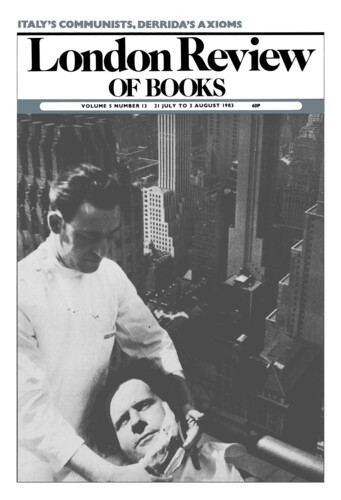Derridas’s Axioms
E.D. Hirsch, 21 July 1983
Deconstruction, the subject of six new books reviewed in a recent issue of the American journal the New Republic, must be judged, simply by virtue of the commentary it has generated, an important cultural phenomenon. Although it originates in the philosophical writings of the French philosopher Jacques Derrida, deconstruction has exercised its main influence upon the teaching of literature in American universities. Just a few years ago, Derrida’s work was introduced into the American academy by Professor Paul de Man; it was then taken up by his students and colleagues; and for the past five years it has been at the centre of academic literary debate. Intellectual culture thrives upon debate. Although opponents of deconstruction may accuse it of nihilism and anti-humanism, nothing could be more humanistic than vigorous arguments about the nature and aim of literature. Deconstruction has forced traditionalists to look to their assumptions and protect their theoretical flanks. Defensive critics have responded to its challenge by denying the importance of literary theory altogether. That manoeuvre will not work, for anti-theory is itself a theoretical position, and a particularly vulnerable one at that.

